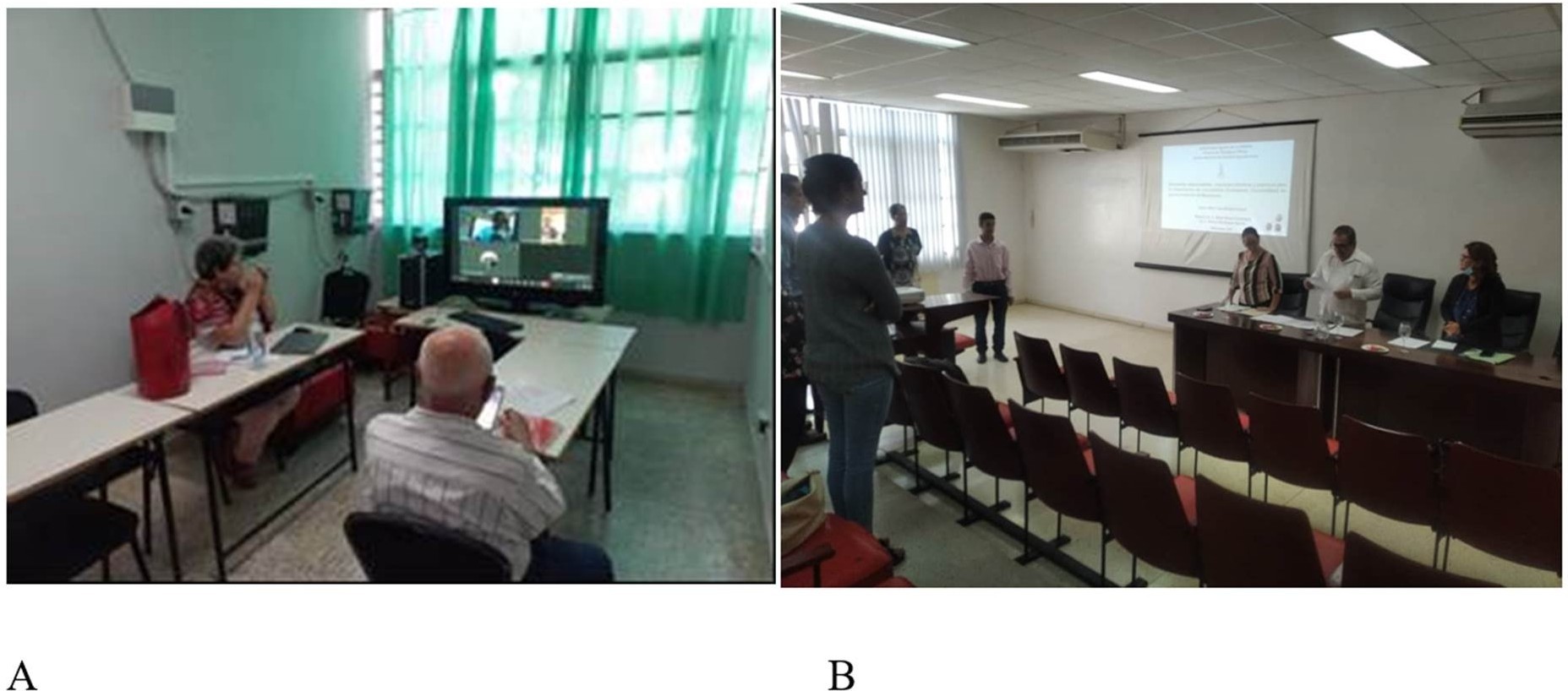Doctoral training in Plant Health at the National Center for Animal and Plant Health: a contribution to postgraduate capacity building in the present context
Main Article Content
Abstract
The objective of this work was to present the experiences of a Science, Technology and Innovation Entity (ECTI) of the Ministry of Higher Education (MES) in the training of highly qualified specialists in Plant Health. Today's agriculture requires a sustainable increase in yields to be guaranteed at a lower economic, environmental and social cost. For this, it is essential to master the biological complexities of the agents that affect the different agroecosystems, a basis on which pest management tactics must be based so that the most appropriate ones are applied taking into account the ability to manipulate their intrinsic characteristics, as well as the environment in which they develop. Training of highly qualified specialists is needed, which is a priority objective of the National System of Scientific Degrees (SNGC). Training of Dr. C. is developed within the framework of the Doctoral Program in Plant Health, which began in January 2019 with the purpose of training Doctors in Agricultural Sciences with an updated vision of the national and international challenges, conditioned by climate change, the protection of the human health, the environment, and food safety, with the novel “One Health” approach. This program provides for the strengthening of the theoretical-practical relationship so that the profile of the graduate is shaped for the development of skills that link the theoretical knowledge acquired and its application in productive practice. Details of the operation of the current Program in Plant Health are provided.
Article Details

This work is licensed under a Creative Commons Attribution-NonCommercial 4.0 International License.
Aquellos autores/as que tengan publicaciones con esta revista, aceptan los términos siguientes:
- Los autores/as conservarán sus derechos de autor y garantizarán a la revista el derecho de primera publicación de su obra, el cual estará simultáneamente sujeto a la Licencia Creative Commons Attribution-NonCommercial 4.0 International (CC BY-NC 4.0) que permite a terceros compartir la obra, siempre que se indique su autor y la primera publicación en esta revista. Bajo esta licencia el autor será libre de:
- Compartir — copiar y redistribuir el material en cualquier medio o formato
- Adaptar — remezclar, transformar y crear a partir del material
- El licenciador no puede revocar estas libertades mientras cumpla con los términos de la licencia
Bajo las siguientes condiciones:
- Reconocimiento — Debe reconocer adecuadamente la autoría, proporcionar un enlace a la licencia e indicar si se han realizado cambios. Puede hacerlo de cualquier manera razonable, pero no de una manera que sugiera que tiene el apoyo del licenciador o lo recibe por el uso que hace.
- NoComercial — No puede utilizar el material para una finalidad comercial.
- No hay restricciones adicionales — No puede aplicar términos legales o medidas tecnológicas que legalmente restrinjan realizar aquello que la licencia permite.
- Los autores/as podrán adoptar otros acuerdos de licencia no exclusiva de distribución de la versión de la obra publicada (p. ej.: depositarla en un archivo telemático institucional o publicarla en un volumen monográfico) siempre que se indique la publicación inicial en esta revista.
- Se permite y recomienda a los autores/as difundir su obra a través de Internet (p. ej.: en archivos telemáticos institucionales o en su página web) antes y durante el proceso de envío, lo cual puede producir intercambios interesantes y aumentar las citas de la obra publicada. (Véase El efecto del acceso abierto).
References
Tablada LM, Sánchez A, Frías M. T, Ramos M, Bell L, Buergo JA. Fidel por siempre en el CENSA. EDICENSA. 2017. 48 pp.
Llanio Martínez G, Peniche Covas C, Rodríguez Pendás M. Los Caminos hacia el Doctorado en Cuba. Ciudad de La Habana. Editorial Universitaria. Ministerio de Educación Superior de la República de Cuba. 2007. ISBN 978-959-16-0663-1
Mayea SS, Herrera LI. La enseñanza de la Sanidad Vegetal en Cuba. Fitosanidad. 2002; 6(3): 47-53.
Comisión Nacional de Grados Científicos (CNGC). Cuba. Normas y Resoluciones vigentes para el desarrollo de los grados científicos en la República de Cuba. 2005.
Pleno de la Comisión Nacional de Grados Científicos Acuerdo 22.460.18. 24 de enero de 2018. 2018.
Navarro DA. ID-181 Manejo Integrado de Plagas. Cooperative Extension Service. University of Kentucky. College of Agriculture, Food and Environment. 2010. 20pp.
Resolución No. 3 de 26 de febrero de 2020 “Sobre la aprobación, modificación y cierre de los Programas de Doctorado por la Comisión Nacional de Grados Científicos”. 2020
Pleno CNGC Acuerdo No. 01.439.16 “Indicaciones de la CNGC para la elaboración de los Programas de Doctorado” en febrero de 2016. 2016
Resolución No. 41/2023 Sobre la aprobación por la Comisión Nacional de Grados Científicos a la Universidad Agraria de La Habana “Fructuoso Rodríguez Pérez” (UNAH), institución autorizada para la formación de doctores. 2023.
Resolución No. 50 del 8 de junio del 2023 Sobre la ratificación programa doctoral de Sanidad Vegetal. 2023
